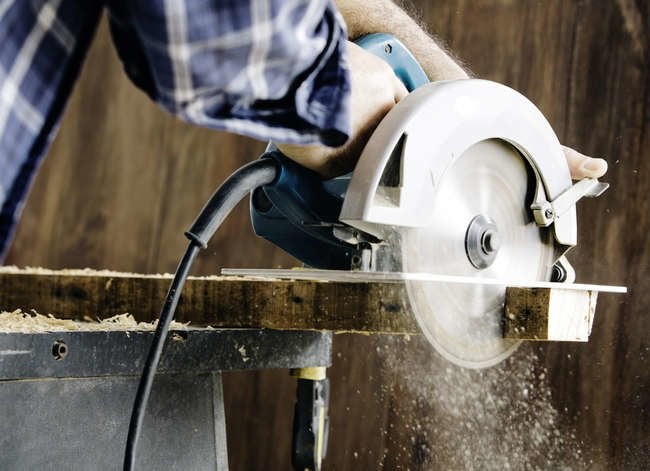We may earn revenue from the products available on this page and participate in affiliate programs. Learn More ›
Operating an Electric Lawn Mower
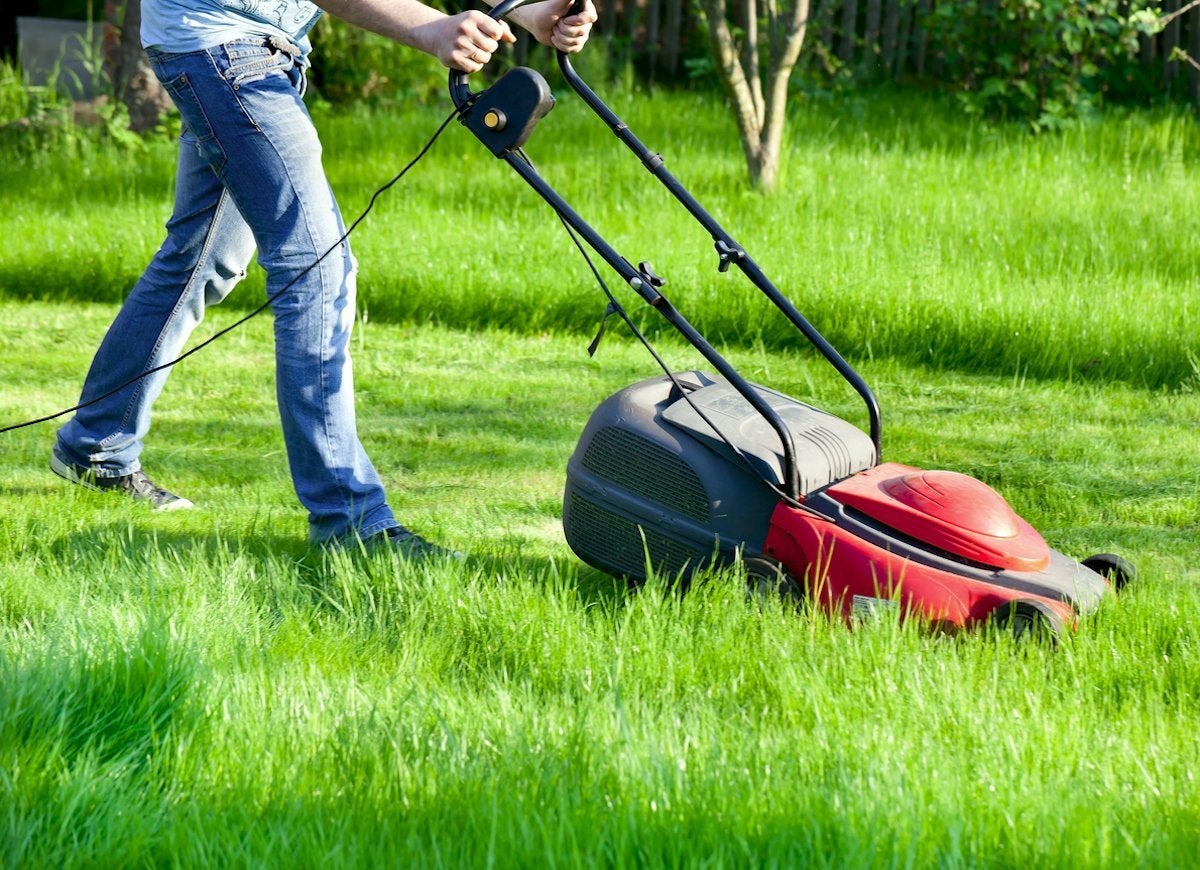
Pairing an extension cord with an electric lawn mower is a recipe for disaster. While newer electric mowers are powered by state-of-the-art battery technology, older models still need to be plugged in—and there is always a danger of running over the cord with the mower blades. If you’re using a corded mower, make sure that the cord is out of the way and secured before and during your mowing session.
Related: 14 Lawn Mowing Mistakes Everyone Makes (and How to Fix Them)
Using Electric Garden Tools
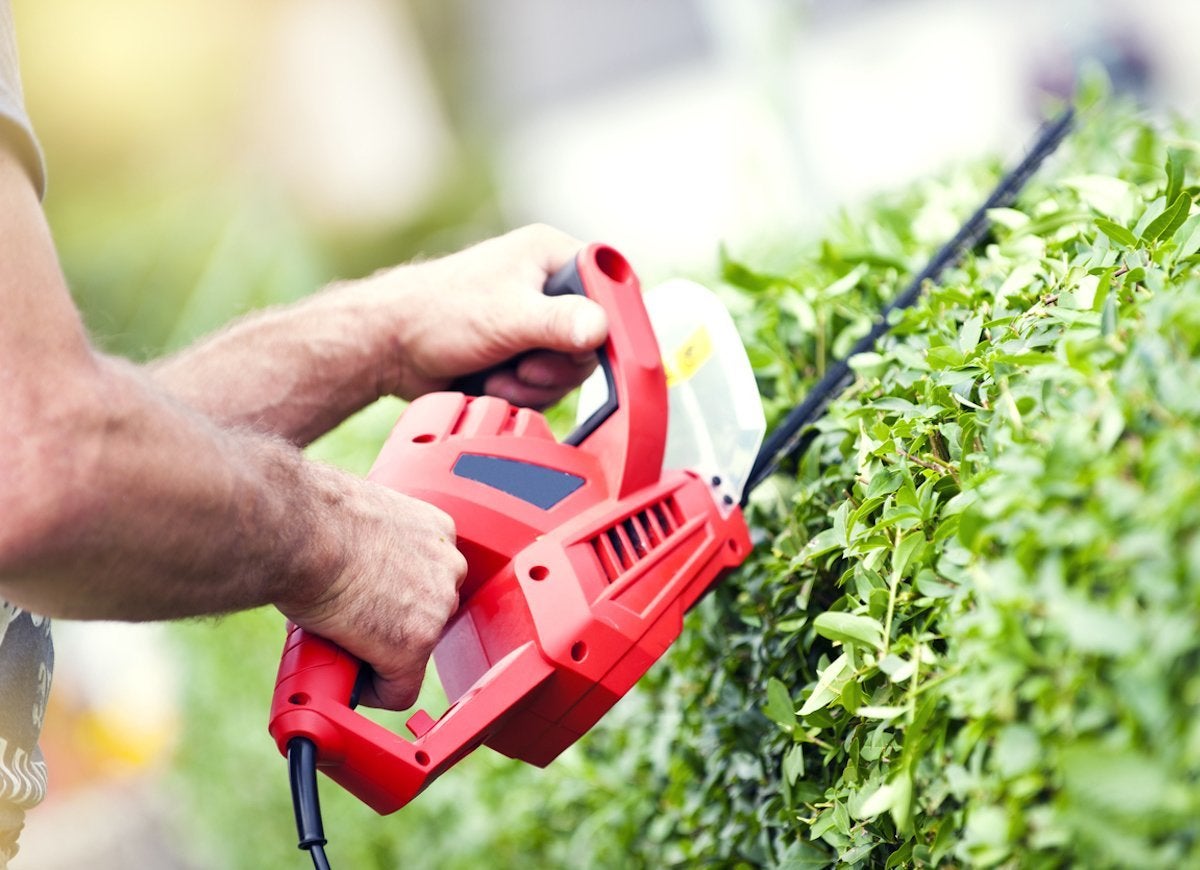
Electric hedge trimmers, chain saws, and other gardening equipment typically require the use of an extension cord—and that cord can pose a hazard if you accidentally slice through it with the cutting blade. The danger is even greater if you are working on trees or high hedges, or standing on a ladder. If you’re handling one of these heavy-duty tools, be sure to use a properly rated extension cord of adequate length, and set tools on manual rather than automatic setting to stay safe.
Related: Proceed With Caution: 12 Power Tools That Can Kill You
Pruning Trees and Branches
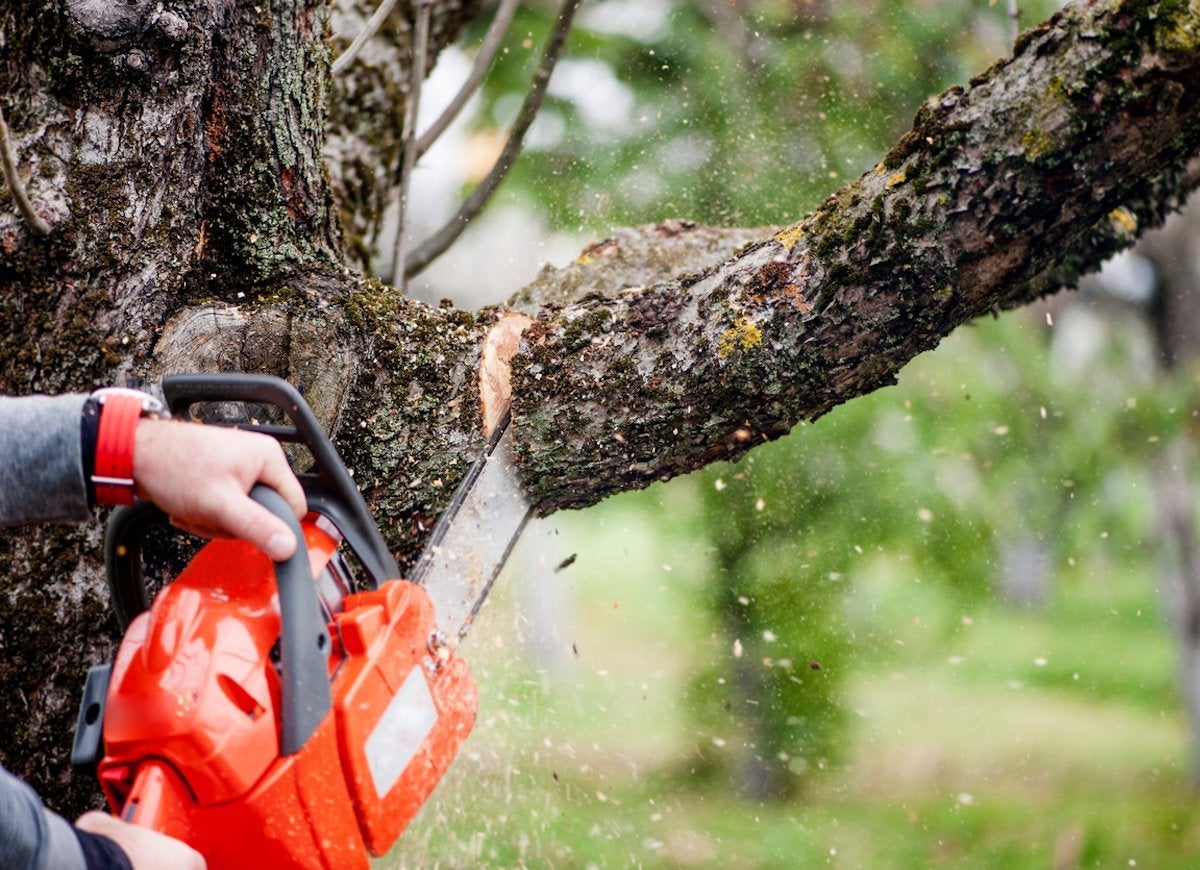
Trimming trees and branches can be dangerous, especially when those branches intersect with power lines. Avoid cutting anywhere close to power lines, and never lean a ladder against a line. Keep in mind: This might be one job to leave to the professionals who have been trained in electrical safety procedures, especially if you have a lot of large trees and branches near your wires.
Related: 11 Ticking Time Bombs in Your House—and What to Do About Them
Replacing a Circuit Breaker
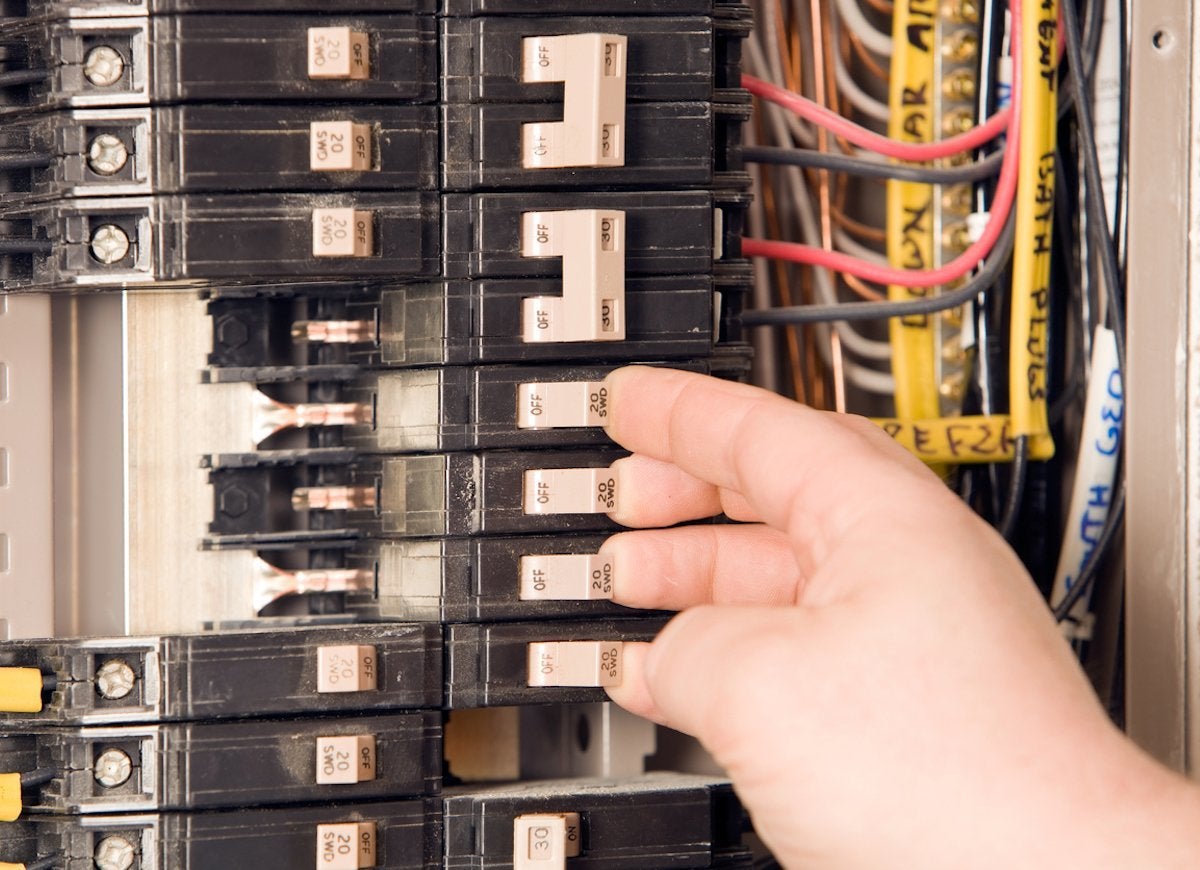
Circuit breakers are the workhorses of your home’s electrical system and typically don’t require maintenance. But age and use can catch up with these sturdy stalwarts, and you may need to replace them from time to time. Never attempt to perform this job when the main power to the house is turned on. Before you make any repairs, be sure power to the system is completely off and disconnected—and if you’re not sure how to do the job, hire a reputable electrician to minimize your risk of injury.
Related: 10 Emergencies Every Homeowner Should Know How to Handle
Maintaining or Replacing a Sump Pump
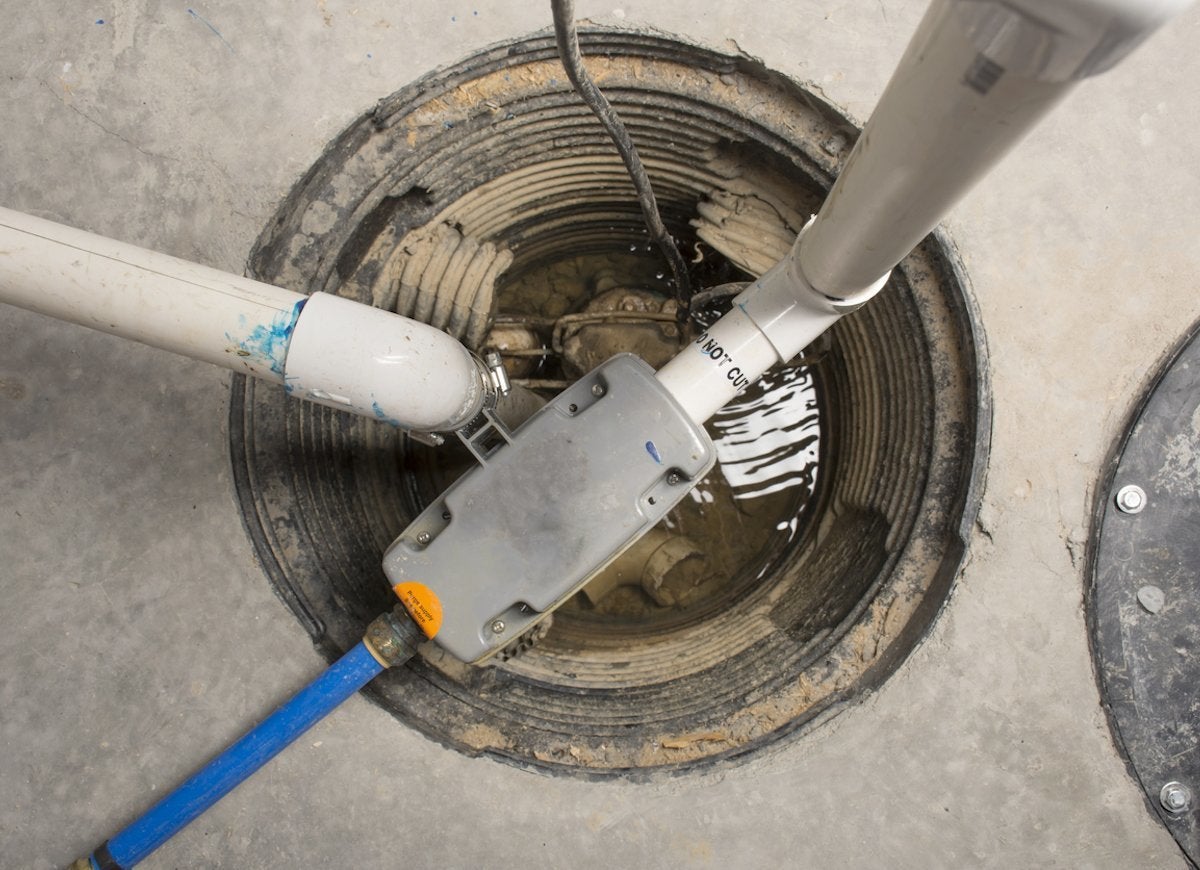
Water and electricity are a bad combination: Water conducts electricity, which makes the risk of electric shock greater in wet conditions. Because a sump pump is typically located in a damp location, always be sure to unplug the pump from the power source before cleaning or replacing it.
Operating Kitchen Appliances
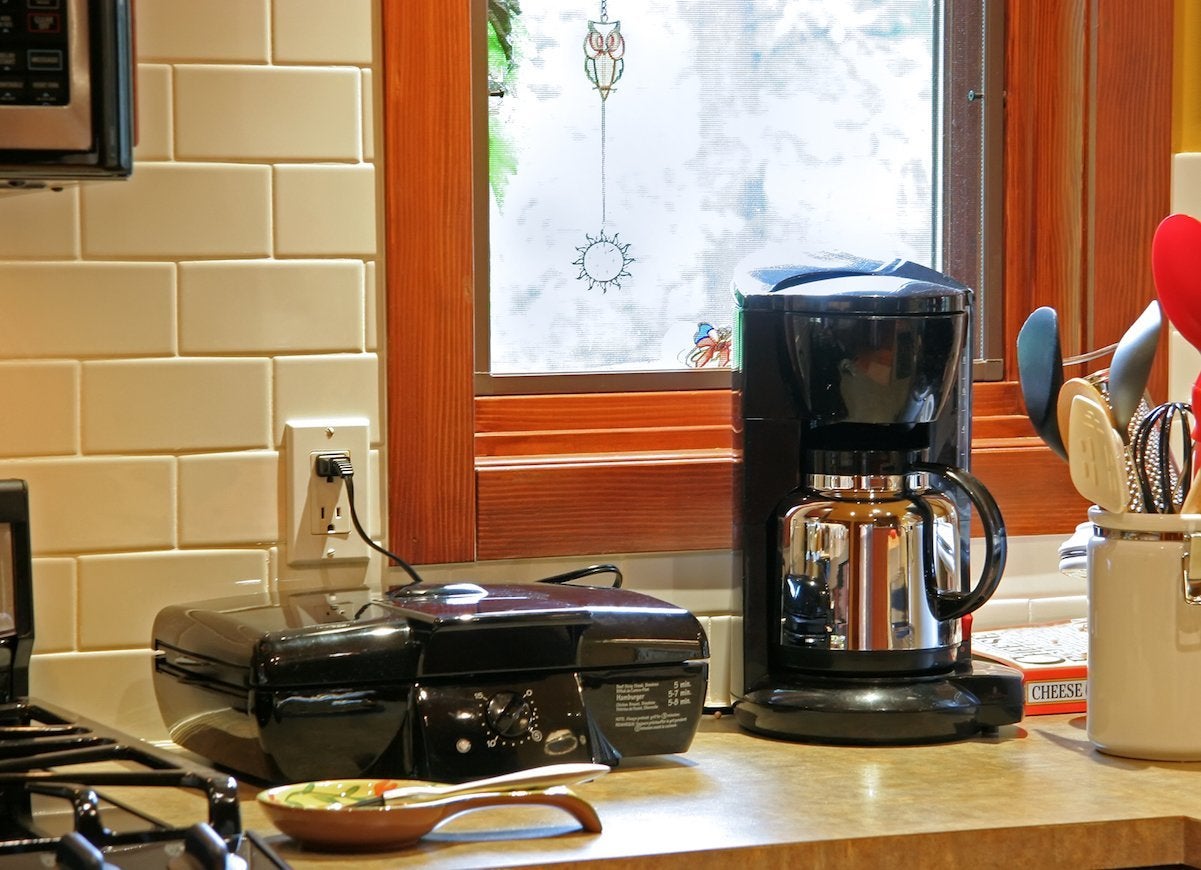
The kitchen appliances we use on a daily basis—the toaster, blender, mixer, slow cooker—can be hazardous if exposed to water. It is best to locate these appliances as far away from the kitchen sink as possible. It’s also important to note that kitchens should always be wired with ground fault circuit interrupter (GFCI) outlets to prevent accidental electric shocks.
Using Bathroom Accessories
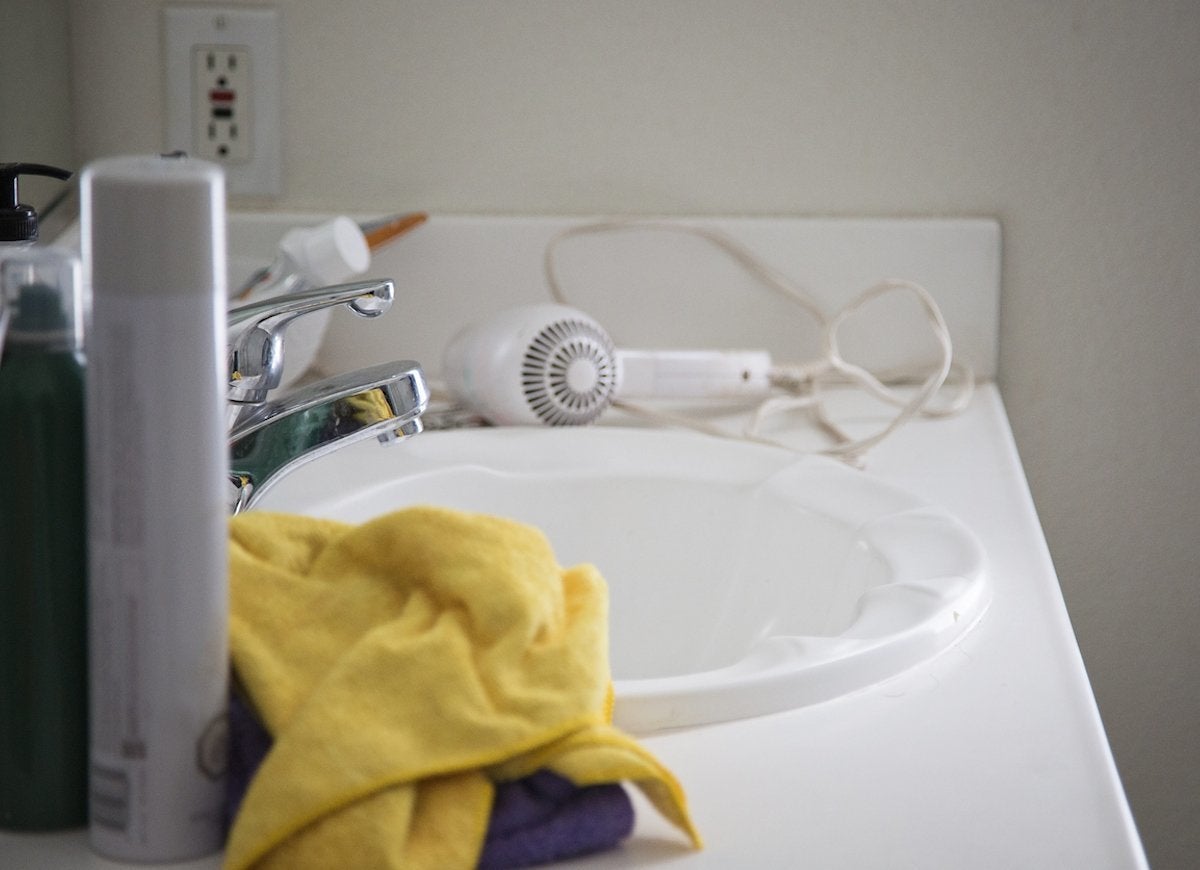
Hair dryers, curling irons, radios, and even televisions are all safe for use in the bathroom, but they do pose a danger when used near sinks, bathtubs, showers, and toilets. Stay in control of your electrical safety by making sure that all power outlets in the bathroom are located away from these water sources, and install GFCI outlets to minimize risk of electrocution. Never keep electric bathroom appliances running while you’re sitting in the bathtub, and be careful not to use hair care appliances over a full bath or sink.
Running a Generator
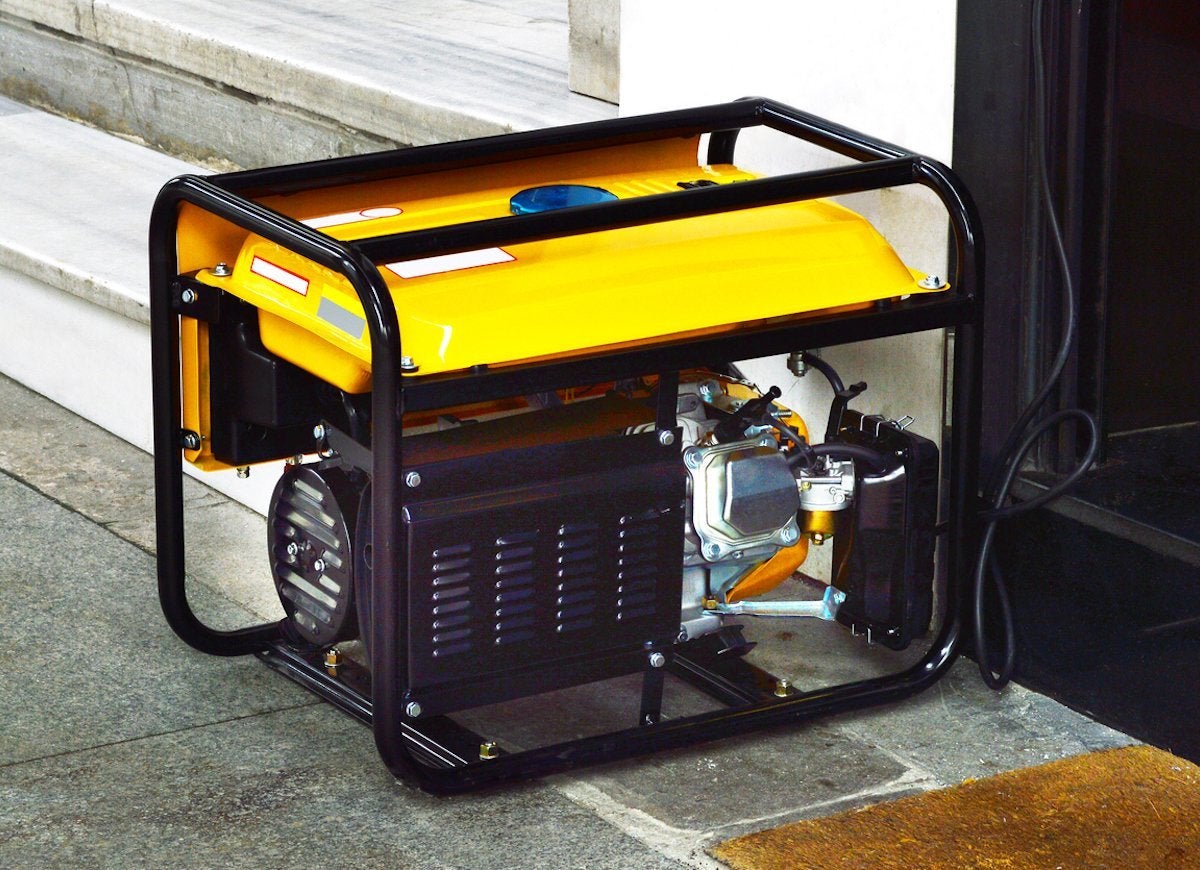
Fixed or portable generators can be lifesavers in the event of power outage, but they can also create an emergency situation of their own if not used appropriately. Always select the proper cords to connect the generator to any appliance you are powering, and make sure to have your generator serviced and maintained on an annual basis to prevent sparks from flying.
Related: The Ultimate Bug-Out Bag List: 30 Emergency Essentials for When Disaster Strikes
Working (or Playing) Around the Pool

Swimming pools pose two different types of dangers when it comes to electricity. The first lies in connecting pumps, filters, heaters, and other components necessary for operating a pool. The second is posed by any appliances in use near the pool—radios, stereos, televisions, and more. Homeowners can stay safe by following municipal guidelines that require new swimming pools to be installed by licensed professionals, and by ensuring that any power sources near the pool be GFCI outlets to minimize the risk of electric shock. Teach your family about electrical safety by explaining the dangers of mixing electricity and water, and keep electric devices as far from the pool as possible.
Spas, Saunas, and Hot Tubs

While a spa, hot tub, or sauna sounds like a delightfully hedonistic addition to your home, all these luxury accessories involve both water and electricity, which means that improper installations can lead to disastrous results. In many cases, putting in a spa or sauna requires a dedicated electrical circuit, and this should be handled by a licensed professional. Never use televisions, radios, or other electronics while sitting in a spa or hot tub.
Related: 11 Outdoor Living Products That We Tested and Loved in 2023
Working with Power Tools
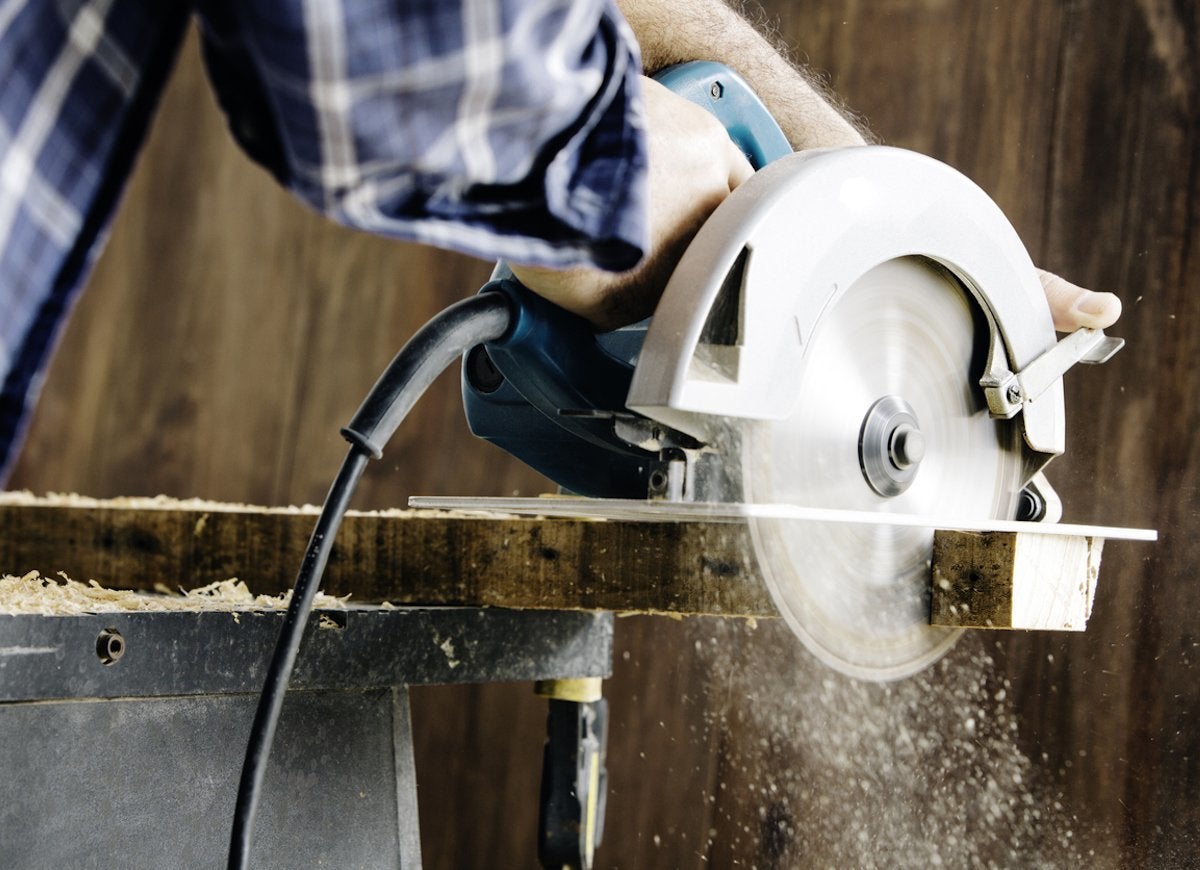
Circular saws, drills, power sanders, and other electrically powered tools can deliver nasty shocks or burns. Protect yourself by practicing proper electrical safety: Periodically inspect the cords and plugs on all power tools or extension cords, and avoid using any tool if the cord shows signs of fraying, nicks, cuts, cracks, or burns.
Confronting Downed Power Lines
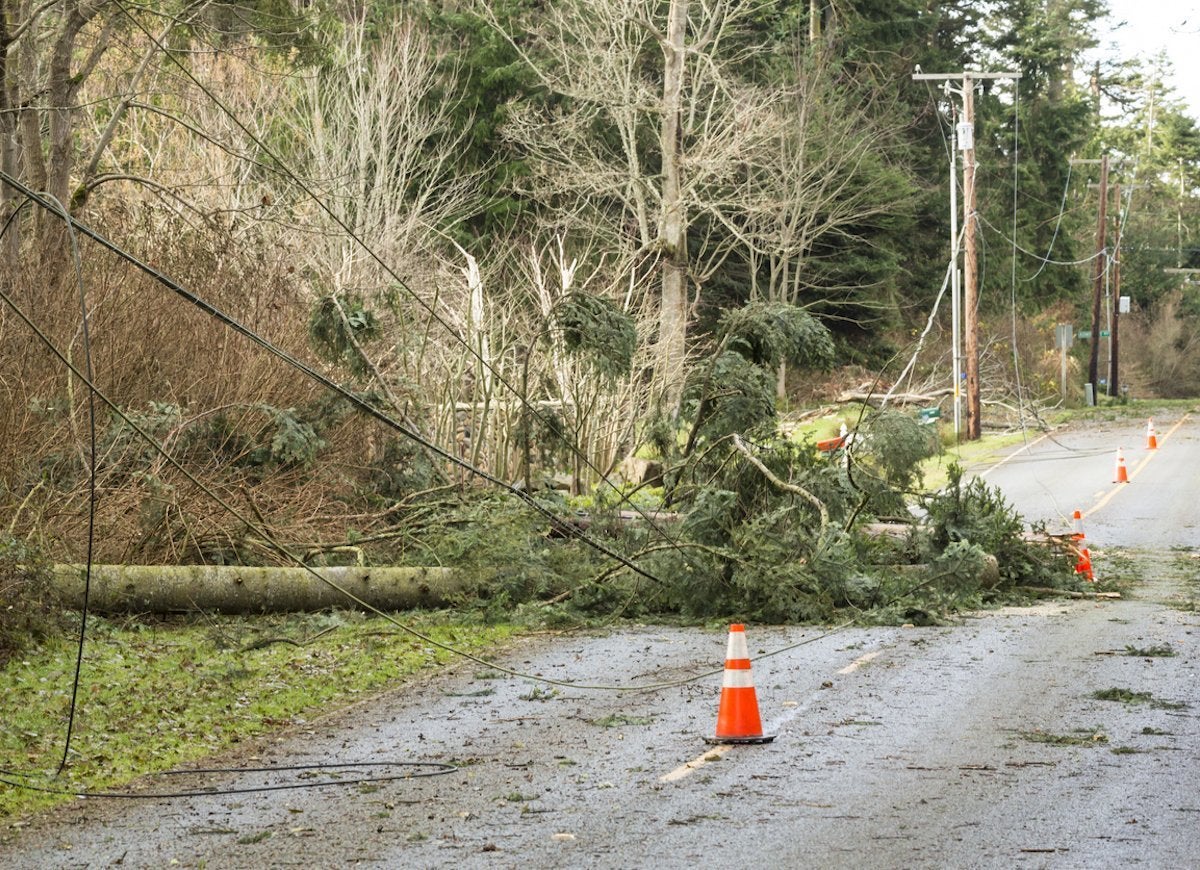
A downed power line can be deadly. If you see a downed line, call 911 and report it immediately. Stay far away from the area, because the ground around a power line can conduct current. Be especially on guard if a downed power line is sitting in a puddle or water source. Water conducts electricity much more effectively than solid ground does, which makes that line even more dangerous.
Related: 11 Ticking Time Bombs in Your House—and What to Do About Them
Safety First
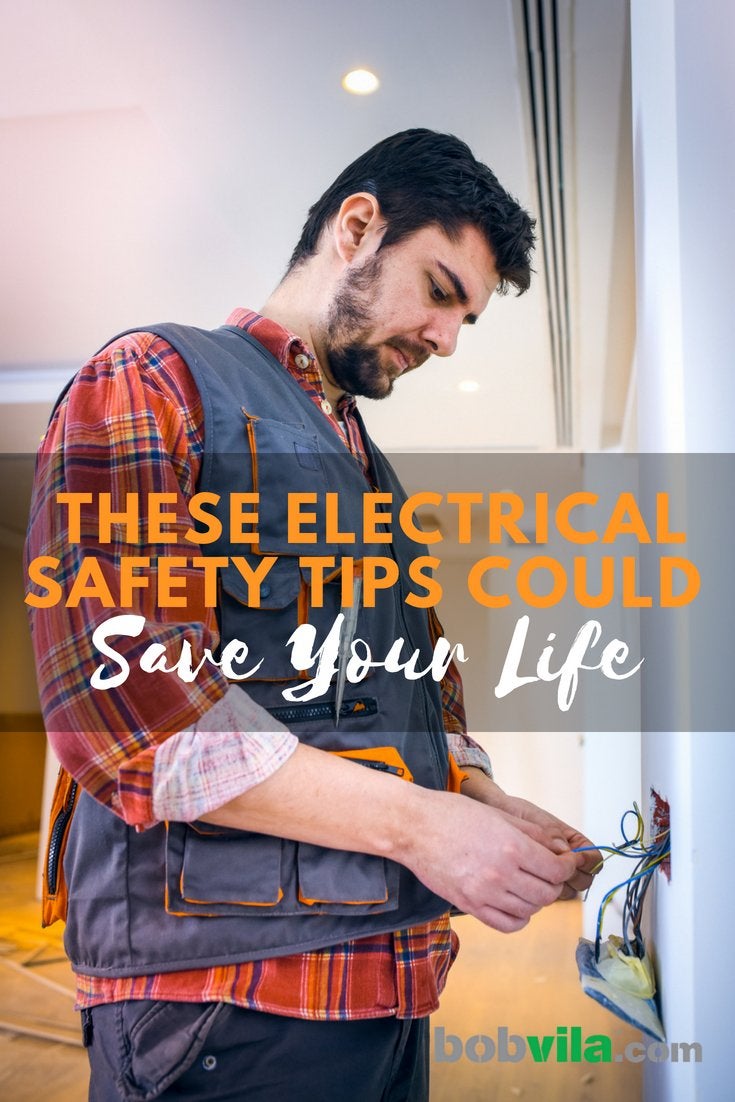
Even if you’re comfortable working with electrical tools and equipment, remember you should always proceed with caution.

Everything You Need for a Lush and Healthy Lawn
Keeping your grass green and your plants thriving doesn’t just take a green thumb—it starts with the right tools and supplies.

